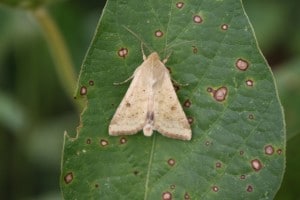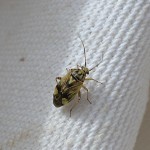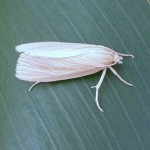This past week samples from Chester, Lauderdale, and Montgomery Counties in Tennessee were confirmed to have southern corn rust, so the question is do you need to put out a fungicide application… Continue reading
Category Archives: Corn
Virtual Milan No-till Field Day … Available Now!
Follow the link below to experience the 2020 Milan No-till Field Day at your own pace! You can watch an entire tour by clicking on its name, or just one presentation by clicking on a specific title.
Please note, all links will open in a new tab. Closed captions are available by clicking the “CC” button on the right side of the video’s play bar.
https://milannotill.tennessee.edu/research-tours/
Moth Trapping Update
A reminder that moth trap catches are reported weekly for corn earworm (bollworm), tobacco budworm, and southwestern corn borer. You can find these data under the Quick Links menu of this web site which takes you to the link below.
http://www.utcrops.com/BlogStuff/2020MothTrappingData.pdf

We are also seeing an increase in bollworm moth catches. I’m hopeful many of these moths will target later corn rather than cotton or soybean, but Continue reading
Corn Diseases and Fungicides
Relatively low disease has been observed in Tennessee so far. The warmer winters most areas had may have allowed survival of disease inoculum and paired with storms coming from the south could result in more disease development this season, so scouting and correctly identifying diseases are important. Continue reading
A Brief Insect Update (June 25, 2020)

It’s been a generally quite week for insect problem but below are some reminders and suggestions.
Cotton: Most cotton is past the stage where thrips are a concern. Tarnished plant bugs will now be our primary focus for much of the season. Thus far, most reports indicate a slow and sporadic start with plant bugs, but treatments are now being made more widely. However tempting, I encourage people to avoid using Continue reading
Moth Trapping Data and Southwestern Corn Borers

Just a reminder that moth trapping data are collected weekly and reported on this website under the Quick Links menus (http://www.utcrops.com/BlogStuff/2020MothTrappingData.pdf). Moth catches of bollworm (corn earworm) and tobacco budworm are low, typical of this time of year. However, southwestern corn borer traps in some areas are pretty high. For those with non-Bt corn, this is a cause for concern in those areas (and perhaps others). This first generation will be found feeding within whorls until they begin stalk tunneling. You can read more about their management by Continue reading
Why irrigation?
Avat Shekoofa, Ph.D., Assistant Professor, Crop Physiologist – Water Stress & Irrigation
Corn Maturity Cutoffs for Herbicides
Due to little time and very few good spray days some corn fields have yet to have their lay-by application. Corn is putting on a new leaf every 3 days with all the heat and water. Therefore time is short before it will be too mature to apply any herbicide safely over the top.
The most asked question “is how large can corn be before glyphosate could potentially cause injury”? The glyphosate label states it can be applied up through the V8 corn growth stage. My experience has been if glyphosate is applied to corn larger than that it can at times cause ears to be barren. This phenomena is difficult to predict ahead of time as it can vary due to maturity of the corn at application, hybrid and weather. Continue reading

